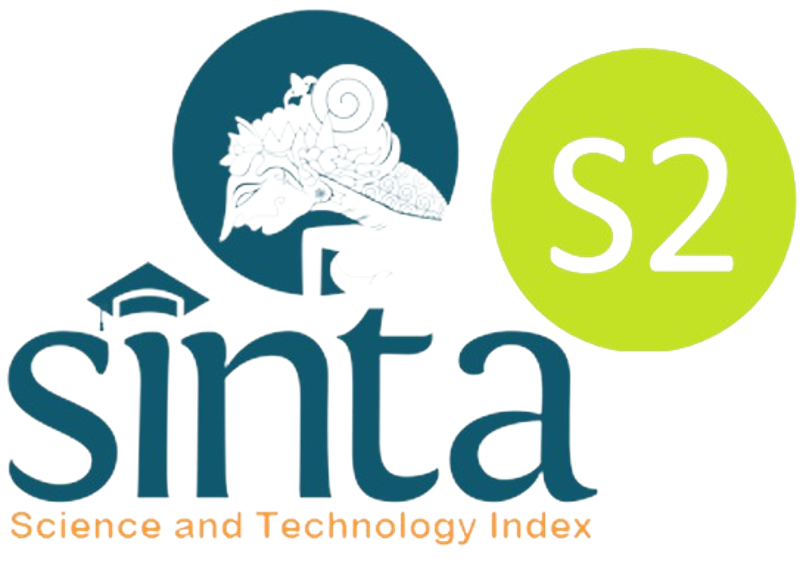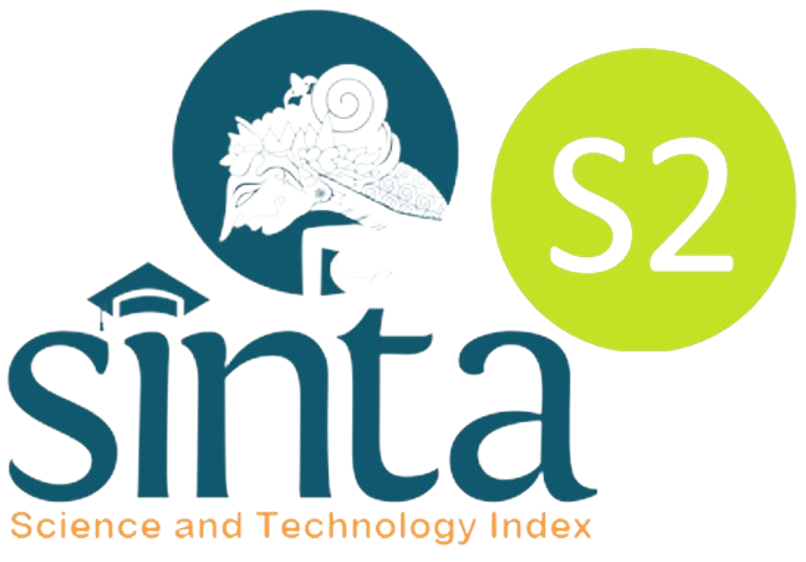DEVELOPMENT OF THE GUIDED INQUIRY STUDENT WORKSHEET FOR BIOLOGY GRADE 11th SENIOR HIGH SCHOOL
DOI:
https://doi.org/10.26740/jpps.v7n2.p1513-1518Keywords:
learning material, guided inquiry, learning achievementAbstract
The purpose of this study is produced Students Worksheet (LKS) which valid, practice, and effective to support the learning biology materials using a guided inquiry model. The development of worksheets is using ADDIE (analyze, design, develop, implement, and evaluate) models and being implemented in XI Grade senior high of Trensains Tebuireng Jombang on odd semester of 2016/2017 academic year with the One-group pretest-posttest design. The validity of the worksheet is measured from consistency (construct validity) and relevant (content validity aspects) based on expert assessment with a minimum score of 2.60 (Valid). Practicality worksheet is measured from students activities and Students activities can be avowed good by minimum 65% of percentage. The effectiveness of the learning device is measured by its impact of the increasing of students learning result in a pilot implementation or final implementation class as well as students response. Meanwhile, the learning device can be avowed effective if there are significant improvement scores of students learning process in knowledge aspect. The responses of students are measured by the percentage of students responses "Yes" in every aspect of the questionnaire with a minimum score of 61% of percentage. The validity and practicality of the data are analyzed descriptively while the increasing of learning cognitive aspects results are analyzed inferentially by using the paired t-test. Based on the data analysis results can be concluded that the development of learning device are valid, practical, and effective.Downloads
References
Akker, Jan van den, Gravemeijer, K., McKenney, S., and Nieveen, N. (2013). Educational design research. Dordrecht: Kluwer Academic Publisher.
Akker, Jan van den. (1999). Principle and Methods of Development Research. London. Dlm. van den Akker, J., Branch, R.M., Gustafson, K., Nieveen, N., & Plomp, T. (pnyt.). Design approaches and tools in educational and training. Dordrecht: Kluwer Academic Publisher.
Akker, Jan van den., Bannan, B., Kelly, A. E., Nieveen, N., & Plomp, T. (2007). An Introduction To Educational Design Research. Netherlands.
Anam, K. (2016). Pembelajaran berbasis inkuiri (Metode dan aplikasi). Yogyakarta: Pustaka Pelajar.
Arends, R.I. (2008). Learning to teach. Yogyakarta: Pustaka Pelajar.
Arikunto, S. (2013). Prosedur penelitian: Suatu pendekatan praktik. Jakarta: PT. Rineka Cipta.
Arikunto, S. (2015). Dasar-dasar evaluasi pendidikan Edisi 2. Jakarta: Bumi Aksara.
Bilgin, I. (2009). The effects of guided inquiry instruction incorporating a cooperative learning approach on university studentss achievement of acid and bases concepts and attitude toward guided inquiry instruction. Scientific Research and Essay, 4(10).
Branch, J. and Oberg, D. (2004). Focus on inquiry a teacher guide to implementing inquiry based learning. Canada: Alberta Education, Alberta.
Daryanto & Aris D. (2014). Pengembangan perangkat pembelajaran (Silabus, RPP, PHB, Bahan Ajar). Yogyakarta: Gava Media.
Erika, F., Prahani, B.K., Supardi, Z.A.I., and Tukiran. (2018). The development of metacognition-based learning media for the industrial electronics field in a vocational high school. World Trans. on Engineering and Technology Education, 16(2), 179-185.
Hamdani. (2011). Strategi belajar mengajar. Bandung: Pustaka Setia.
Hergenhahn, B.R. dan Olson, M.H. (2009). Theories of learning (teori belajar) edisi bahasa Indonesia. Jakarta: Kencana Prenada Media Group.
Jatmiko, B., Prahani, B.K., Munasir, Supardi, Z.A.I., Wicaksono, I., Erlina, N., Pandiangan, P., Althaf, R., and Zainuddin. (2018). The comparison of OR-IPA teaching model and problem based learning model effectiveness to improve critical thinking skills of pre-service physics teachers. Journal of Baltic Science Education, 17(2), 1-22.
Kunandar. (2013). Penilaian autentik (Penilaian hasil belajar peserta didik berdasarkan kurikulum 2013): Suatu pendekatan praktis. Jakarta: PT. Rajagrafindo Persada.
Lee, M. (2007). The effect of guided inquiry laboratory on conceptual understanding. Northridge: California State University.
Limatahu I., Suyatno, Wasis, and Prahani, B.K. (2018). The effectiveness of CCDSR learning model to improve skills of creating lesson plan and worksheet science process skills (SPS) for pre-service physics teacher. Journal Physics: Conference Series, 997(1), 012032.
Madeali, H. and Prahani, B.K. (2018). Development of multimedia learning based inquiry on vibration and wave material. Journal Physics: Conference Series, 997(1), 012029.
Mulyasa, E. (2013). Pengembangan dan implementasi kurikulum 2013. Bandung: PT. Remaja Rosdakarya.
Permendikbud. (2014). Peraturan Menteri pendidikan dan kebudayaan nomor 103 tentang pembelajaran pada pendidikan dasar dan pendidikan menengah . Jakarta: Depdiknas.
Prahani, B.K., Limatahu, I., Winata, S.W., Yuanita, L., and Nur, M. (2016). Effectiveness of physics learning material through guided inquiry model to improve students problem solving skills based on multiple representation. International Journal of Education and Research, 4(12), 231-244.
Prahani, B.K., Nur, M., Yuanita, L., and Limatahu, I. (2016). Validitas model pembelajaran group science learning: Pembelajaran inovatif di Indonesia. Vidhya Karya, 31(1), 72-80.
Prahani, B.K., Soegimin, W.W., and Yuanita, L. (2015). Pengembangan perangkat pembelajaran fisika model inkuiri terbimbing untuk melatihkan keterampilan penyelesaian masalah berbasis multi representasi siswa SMA. Jurnal Penelitian Pendidikan Sains, 4(2), 503-517.
Prahani, B.K., Suprapto, N., Suliyanah, Lestari, N.A., Jauhariyah, M.N.R, Admoko, S., and Wahyuni, S. (2018). The effectiveness of collaborative problem based physics learning (CPBPL) model to improve students self-confidence on physics learning. Journal Physics: Conference Series, 997(1), 012008.
Purwaningsih, E., Suyatno, Wasis, and Prahani, B.K. (2018). The effectiveness of comcorels model to improve skills of creating physics lesson plan (CPLP) for pre-service physics teacher. Journal Physics: Conference Series, 997(1), 012022.
Riduwan. (2006). Skala pengukuran variabel-variabel penelitian. Bandung: Alfabeta.
Shidiq, A.S. (2014). Pengembangan instrumen penilaian two-tier multiple choise untuk mengukur keterampilan berpikir tingkat tinggi (higher order thinking skills) pada materi kelarutan dan hasil kali kelarutan untuk siswa SMA/MA kelas XI. Jurnal Pendidikan Kimia (JPK), 3(4).
Sofiani, E. (2011). Pengaruh model inkuiri terbimbing (guided inquiry) terhadap hasil belajar fisika siswa pada konsep listrik dinamis.
Sudiarman, Soegimin, W.W., and Susantini, E. (2015). Pengembangan perangkat pembelajaran fisika berbasis inkuiri terbimbing untuk melatihkan keterampilan proses sains dan meningkatkan hasil belajar pada topik suhu dan perubahannya. Jurnal Penelitian Pendidikan Sains, 4(2), 636-647.
Sugiyono. (2012). Memahami penelitian kualitatif. Bandung: CV Alfabeta.
Sunarti T., Wasis, Madlazim, Suyidno, and Prahani, B.K. (2018). The effectiveness of CPI model to improve positive attitude toward science (PATS) for pre-service physics teacher. Journal Physics: Conference Series, 997(1), 012013.
Suyidno, Nur, M., Yuanita, L., and Prahani, B.K. (2017). Validity of creative responsibility based learning: An innovative physics learning to prepare the generation of creative and responsibility. Journal of Research & Method in Education, 7(1), 56-61.
Suyidno, Nur, M., Yuanita, L., Prahani, B.K., and Jatmiko, B. (2018). Effectiveness of creative responsibility based teaching (CRBT) model on basic physics learning to increase students scientific creativity and responsibility. Journal of Baltic Science Education, 17(1), 136-151.
Tirtonegoro, S. (2001). Penelitian Hasil Belajar Mengajar. Surabaya: Usaha Nasional.
Ural, E. (2016). The effect of guided-inquiry laboratory experiments on science education students chemistry laboratory attitudes, anxiety and achievement. Journal of Education and Training Studies, 4(4).
Winataputra, U.S. (2007). Teori belajar dan pembelajaran. Jakarta: Universitas Terbuka.
Yasir, M., Ibrahim, M., and Widodo, W. (2016). Pengembangan perangkat pembelajaran biologi berbasis metakognitif untuk melatihkan kejujuran siswa. Jurnal Penelitian Pendidikan Sains, 5(2), 1109-1015.
Downloads
Published
How to Cite
Issue
Section
 Abstract views: 1772
,
Abstract views: 1772
, PDF Downloads: 912
PDF Downloads: 912












